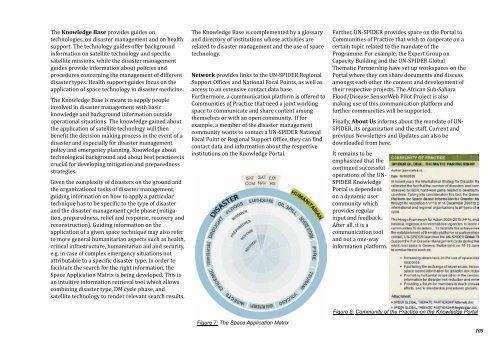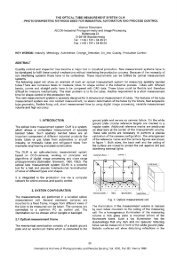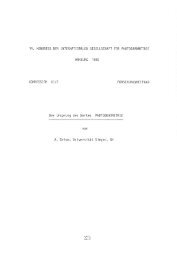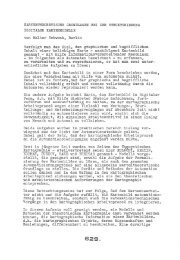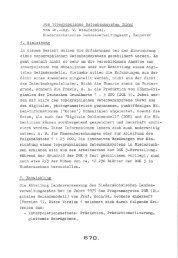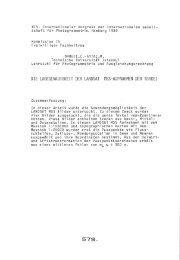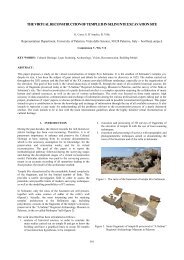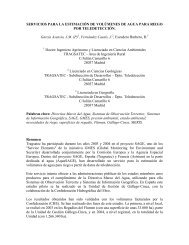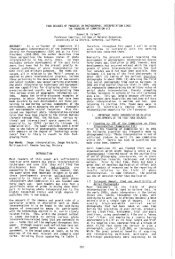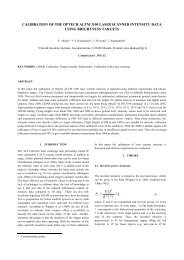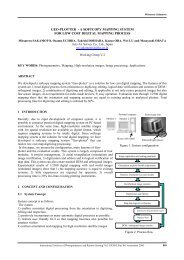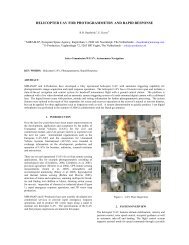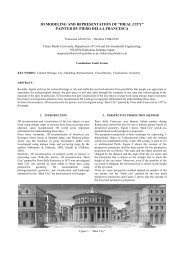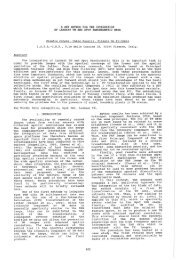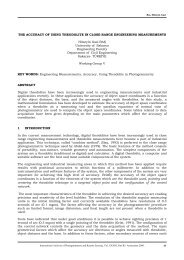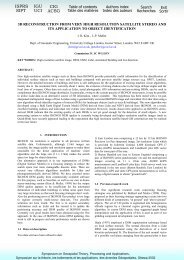Geoinformation for Disaster and Risk Management - ISPRS
Geoinformation for Disaster and Risk Management - ISPRS
Geoinformation for Disaster and Risk Management - ISPRS
Create successful ePaper yourself
Turn your PDF publications into a flip-book with our unique Google optimized e-Paper software.
The Knowledge Base provides guides on<br />
technologies, on disaster management <strong>and</strong> on health<br />
support. The technology guides offer background<br />
in<strong>for</strong>mation on satellite technology <strong>and</strong> specific<br />
satellite missions, while the disaster management<br />
guides provide in<strong>for</strong>mation about policies <strong>and</strong><br />
procedures concerning the management of different<br />
disaster types. Health support guides focus on the<br />
application of space technology in disaster medicine.<br />
The Knowledge Base is meant to supply people<br />
involved in disaster management with basic<br />
knowledge <strong>and</strong> background in<strong>for</strong>mation outside<br />
operational situations. The knowledge gained about<br />
the application of satellite technology will then<br />
benefit the decision making process in the event of a<br />
disaster <strong>and</strong> especially <strong>for</strong> disaster management<br />
policy <strong>and</strong> emergency planning. Knowledge about<br />
technological background <strong>and</strong> about best practices is<br />
crucial <strong>for</strong> developing mitigation <strong>and</strong> preparedness<br />
strategies.<br />
Given the complexity of disasters on the ground <strong>and</strong><br />
the organizational tasks of disaster management,<br />
guiding in<strong>for</strong>mation on how to apply a particular<br />
technique has to be specific to the type of disaster<br />
<strong>and</strong> the disaster management cycle phase (mitigation,<br />
preparedness, relief <strong>and</strong> response, recovery <strong>and</strong><br />
reconstruction). Guiding in<strong>for</strong>mation on the<br />
application of a given space technique may also refer<br />
to more general humanitarian aspects such as health,<br />
critical infrastructure, humanitarian aid <strong>and</strong> security,<br />
e.g. in case of complex emergency situations not<br />
attributable to a specific disaster type. In order to<br />
facilitate the search <strong>for</strong> the right in<strong>for</strong>mation, the<br />
Space Application Matrix is being developed. This is<br />
an intuitive in<strong>for</strong>mation retrieval tool which allows<br />
combining disaster type, DM cycle phase, <strong>and</strong><br />
satellite technology to render relevant search results.<br />
The Knowledge Base is complemented by a glossary<br />
<strong>and</strong> directory of institutions whose activities are<br />
related to disaster management <strong>and</strong> the use of space<br />
technology.<br />
Network provides links to the UN-SPIDER Regional<br />
Support Offices <strong>and</strong> National Focal Points, as well as<br />
access to an extensive contact data base.<br />
Furthermore, a communication plat<strong>for</strong>m is offered to<br />
Communities of Practice that need a joint working<br />
space to communicate <strong>and</strong> share content among<br />
themselves or with an open community. If <strong>for</strong><br />
example, a member of the disaster management<br />
community wants to contact a UN-SPIDER National<br />
Focal Point or Regional Support Office, they can find<br />
contact data <strong>and</strong> in<strong>for</strong>mation about the respective<br />
institutions on the Knowledge Portal.<br />
Figure 7: The Space Application Matrix<br />
Further, UN-SPIDER provides space on the Portal to<br />
Communities of Practice that wish to cooperate on a<br />
certain topic related to the m<strong>and</strong>ate of the<br />
Programme. For example, the Expert Group on<br />
Capacity Building <strong>and</strong> the UN-SPIDER Global<br />
Thematic Partnership have set up workspaces on the<br />
Portal where they can share documents <strong>and</strong> discuss<br />
amongst each other the content <strong>and</strong> development of<br />
their respective projects. The African Sub-Sahara<br />
Flood/Disease SensorWeb Pilot Project is also<br />
making use of this communication plat<strong>for</strong>m <strong>and</strong><br />
further communities will be supported.<br />
Finally, About Us in<strong>for</strong>ms about the m<strong>and</strong>ate of UN-<br />
SPIDER, its organization <strong>and</strong> the staff. Current <strong>and</strong><br />
previous Newsletters <strong>and</strong> Updates can also be<br />
downloaded from here.<br />
It remains to be<br />
emphasized that the<br />
continued successful<br />
operations of the UN-<br />
SPIDER Knowledge<br />
Portal is dependent<br />
on a dynamic user<br />
community which<br />
provides regular<br />
input <strong>and</strong> feedback.<br />
After all, it is a<br />
communication tool<br />
<strong>and</strong> not a one-way<br />
in<strong>for</strong>mation plat<strong>for</strong>m.<br />
Figure 8: Community of the Practice on the Knowledge Portal<br />
109


